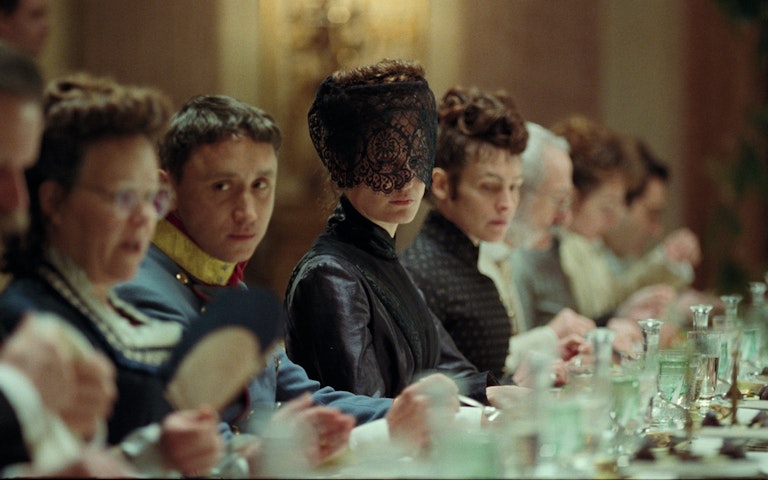Young Critics Review: Drii Winter

Drii Winter, the second feature by Swiss director Michael Koch, opens with a static shot of an enormous rock. In the bottom right-hand corner, we glimpse a road and perceive the distant noises of passing motorbikes and cars, evidence of a world that seems to have nothing to do with the inscrutable indifference of nature represented by the boulder. A choir of singing voices helps to hide the road noise and introduce a sense of solemnity to this landscape picture, as if to impose a feeling of ecstasy and enchantment on the spectator. Finally, a blanket of fog ends up obstructing the view of the street altogether, thus completing the operation of camouflage and at the same time sublimation initially carried out by the choir.
Koch’s film is an intelligent and remarkable commentary on the radical impossibility of looking at nature with a pure gaze and the need, on the contrary, to camouflage and idealise it.
Koch’s film is an intelligent and remarkable commentary on the radical impossibility of looking at nature with a pure gaze and the need, on the contrary, to camouflage and idealise it. It is not difficult to understand what, more than anything else, this sublimation attempts to conceal: the fear of death, a sad law of nature from which no one can escape. "I don't want to die", Marco confesses to Anna, and the same sentence is later repeated by her daughter, showing how this fear tends to reproduce itself from generation to generation. In the scene where Marco is transported by car to the hospital, the camera (supported by extradiegetic music) slowly moves towards the snow-covered trees by the side of the road, as a temporary exorcising of the impending death. “Come, sweet death”, sings the choir. Marco's death will not actually come until later (apparently in p.o.v.), with no choir or musical accompaniment in the background, only the chirping of a few birds and the sounds of his wife from the other room, a lukewarm light coming in through the window.

Angelo Elia
I am an Italian cinephile currently living in Turin and have recently completed an MA in film and media studies. I occasionally write about movies, particularly American movies and even more particularly westerns (I wrote a thesis on the cinematic representations of Wyatt Earp).


